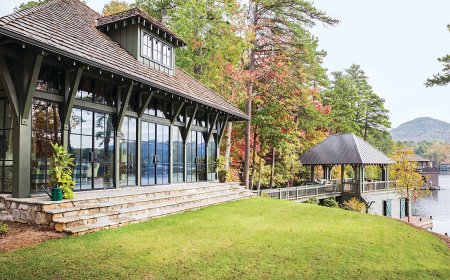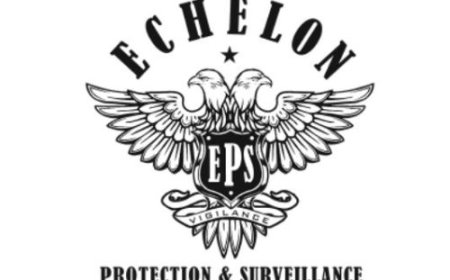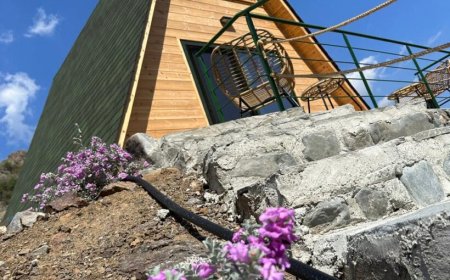How to Picnic in Mudchute Farm
How to Picnic in Mudchute Farm Mudchute Farm, located on the Isle of Dogs in East London, is one of the city’s most unique urban green spaces—a working farm nestled between skyscrapers, docks, and residential towers. More than just a rare patch of rural tranquility in the heart of a bustling metropolis, Mudchute Farm offers visitors the rare opportunity to experience agriculture, animal care, and
How to Picnic in Mudchute Farm
Mudchute Farm, located on the Isle of Dogs in East London, is one of the citys most unique urban green spacesa working farm nestled between skyscrapers, docks, and residential towers. More than just a rare patch of rural tranquility in the heart of a bustling metropolis, Mudchute Farm offers visitors the rare opportunity to experience agriculture, animal care, and open-air relaxation without leaving the city. Picnicking here is not merely about eating outdoors; its about connecting with nature, supporting community-led sustainability, and enjoying a quiet escape from urban noise. This guide provides a comprehensive, step-by-step approach to planning, executing, and enjoying a perfect picnic at Mudchute Farm, whether youre a first-time visitor or a local seeking a fresh perspective.
Unlike traditional park picnics, a picnic at Mudchute Farm requires thoughtful preparation due to its semi-rural setting, active farming operations, and environmental sensitivities. This guide breaks down everything you need to knowfrom navigating the farms layout and respecting its ecosystem, to selecting the right food, gear, and timing. By following these guidelines, youll not only have a more enjoyable experience but also contribute positively to the farms mission of education, conservation, and community engagement.
Step-by-Step Guide
Step 1: Plan Your Visit Around Farm Hours and Events
Before packing your basket, check Mudchute Farms official website or social media channels for daily opening hours and scheduled events. The farm is typically open from 10:00 AM to 5:00 PM daily, but hours may vary seasonally or during special events such as lambing season, harvest festivals, or educational workshops. Avoid visiting during feeding times or animal handling sessions unless you intend to participatethese are often busy and may restrict quiet picnic areas.
Weekends and public holidays tend to be busier, especially in spring and summer. If you prefer solitude, aim for weekday mornings between 10:30 AM and 12:30 PM. This window offers calm pathways, fewer crowds, and optimal lighting for photography. Always verify the calendar for temporary closures due to weather, maintenance, or animal welfare needs.
Step 2: Choose the Right Picnic Spot
Mudchute Farm spans approximately 16 acres and features multiple zones: the main meadow, the vegetable garden, the animal enclosures, the woodland trail, and the community orchard. Not all areas are suitable for picnicking. Designated picnic zones include:
- The Main Meadow Flat, grassy, and centrally located near the farm shop and toilets. Ideal for families and groups.
- The Orchard Area Shaded by apple, pear, and plum trees. Offers natural cover and a quiet atmosphere.
- The Garden Bench Nooks Scattered near the herb and vegetable plots. Perfect for solo visitors or couples seeking serenity.
Avoid picnicking directly next to animal pens, compost heaps, or irrigation channels. These areas are either actively managed or pose hygiene risks. Look for signage indicating Picnic Zone or ask a farm volunteer for guidance upon arrival. Always place your blanket or mat on grass, not on pathways or cultivated soil.
Step 3: Pack Smart What to Bring
Picnicking at Mudchute Farm requires a balance of practicality and environmental responsibility. Heres a curated checklist:
- Reusable picnic blanket Choose one made from waterproof, easy-to-clean fabric. Avoid single-use plastic sheets.
- Insulated cooler or thermal bag Keep perishables chilled. Use ice packs instead of loose ice to prevent water runoff.
- Reusable containers and cutlery Avoid disposable plastics. Glass jars, stainless steel boxes, and bamboo utensils are ideal.
- Collapsible water bottles or thermoses The farm has drinking water taps, but bringing your own reduces waste.
- Hand sanitizer and wet wipes Essential for hygiene after petting animals or handling food.
- Small trash bag Pack out everything you bring in. There are bins, but self-sufficiency helps reduce landfill burden.
- Light jacket or shawl Even on warm days, the river breeze can be chilly, especially near the docks.
- Field guide or app for local flora/fauna Enhance your experience by identifying birds, wildflowers, or farm animals.
Do not bring alcohol, fireworks, drones, or amplified music. These are prohibited to preserve the farms peaceful, educational environment.
Step 4: Select Picnic-Friendly Foods
Food choices should reflect the farms ethos: sustainable, local, and minimally packaged. Opt for:
- Locally sourced cheeses and charcuterie Buy from the farm shop or nearby East London markets like Broadway Market.
- Seasonal fruit and vegetables Apples, strawberries, radishes, and tomatoes harvested nearby taste best.
- Homemade sandwiches with whole-grain bread Avoid plastic-wrapped loaves. Bake your own or buy from a local bakery.
- Trail mix or energy bars made with nuts and dried fruit No artificial additives or excessive packaging.
- Herbal iced tea or infused water Brew at home with mint, lemon balm, or chamomile from the farms herb garden.
Steer clear of processed snacks, sugary drinks, and foods with non-recyclable wrappers. The farm encourages visitors to support local food producers and reduce plastic waste. Consider purchasing a small treat from the farm shopyour purchase directly supports their operations.
Step 5: Arrive and Set Up Respectfully
Upon arrival, enter through the main gate on Mudchute Lane. Walk your belongings inno carts or wagons are permitted beyond the entrance to protect the soil and animal paths. Once youve chosen your spot:
- Unroll your blanket on dry grass, away from animal tracks or muddy patches.
- Place all food containers on a clean surfacenever directly on the ground.
- Keep trash and wrappers contained until youre ready to leave.
- Respect quiet zones: if you hear children learning about sheep or volunteers?? composting, keep your voice low.
If youre with children, supervise them closely. The farm is not a playgroundwhile animals are friendly, they are not pets. Never feed animals unless instructed by staff. Even seemingly harmless foods like bread or carrots can disrupt their diet.
Step 6: Engage with the Farm Experience
A picnic at Mudchute Farm is more than a mealits an opportunity to learn. Take time to:
- Observe the goats, sheep, pigs, and chickens from a distance. Note their behaviors and interactions.
- Read the informational plaques near the vegetable beds. Learn how crops are rotated and composted.
- Visit the beehives (viewing area only) and learn about pollination.
- Ask a volunteer a question. Most are passionate and happy to share knowledge about urban farming.
This engagement transforms your picnic from a passive activity into a meaningful connection with food systems and sustainability. Youre not just eatingyoure witnessing the cycle of life that sustains us.
Step 7: Clean Up Thoroughly and Leave No Trace
Before you depart:
- Collect every crumb, wrapper, and napkineven organic waste like apple cores should be disposed of properly (compost bins are available near the exit).
- Check under your blanket for lost items: keys, phones, or childrens toys.
- Wipe down reusable containers before packing them.
- Leave the area cleaner than you found it. Pick up one piece of litter left by others if you can.
Mudchute Farm operates on volunteer power and minimal funding. Your commitment to cleanliness directly supports their ability to remain open and accessible to all. Leaving no trace isnt just etiquetteits essential to preserving this urban oasis.
Step 8: Extend Your Visit
After your picnic, consider extending your time at the farm:
- Take a self-guided walk along the woodland trail to the River Thames.
- Visit the farm shop to buy honey, eggs, or seasonal produce.
- Join a free weekend workshop on composting, seed saving, or urban gardening.
- Sketch or photograph the landscapemany artists and writers find inspiration here.
Many visitors return weekly, making Mudchute Farm a personal sanctuary. Your picnic can be the start of a deeper relationship with the land.
Best Practices
Respect the Animals and Their Habitat
Mudchute Farm is home to over 100 animals, including rare-breed livestock such as Tamworth pigs and Hebridean sheep. These animals are not for entertainmentthey are part of a conservation program. Keep your distance. Do not attempt to touch, feed, or call to them. Loud noises or sudden movements can stress them. Children should be taught to observe quietly and respectfully. Remember: your presence is a privilege, not a right.
Minimize Environmental Impact
Even small actions add up. Avoid single-use items. Refill water bottles instead of buying bottled drinks. Use public transport or cycle to the farmthe Isle of Dogs has excellent cycle lanes and DLR access. If you drive, park responsibly and avoid congestion near the entrance. The farms soil is fragile; walking on designated paths prevents erosion and protects root systems.
Support the Farms Mission
Mudchute Farm is run by the Mudchute Association, a registered charity. Your picnic becomes more meaningful when you contribute. Buy a bag of carrots from the shop. Donate a few pounds at the collection box. Volunteer for a morning of weeding or animal care. Even sharing your experience on social media with
MudchuteFarmPicnic helps raise awareness and attract support.
Be Weather-Ready
London weather is unpredictable. Always check the forecast before leaving. Rain is commoneven in summer. Bring a lightweight, packable raincoat or poncho. Avoid cotton clothing; it absorbs moisture and takes hours to dry. A small umbrella is acceptable, but avoid large ones that block views or disturb others. On hot days, wear a hat and bring sunscreen. The farm has limited shade, so plan accordingly.
Be Inclusive and Considerate
Mudchute Farm welcomes people of all ages, abilities, and backgrounds. If youre visiting with someone who uses a mobility aid, note that some paths are uneven. The main meadow and shop are wheelchair accessible, but woodland trails are not. Keep noise levels low for neurodiverse visitors. Avoid strong perfumes or scented productsthey can upset animals and sensitive individuals. Be patient with others. This is a shared space.
Follow the Leave No Trace Ethic
Adopt these seven principles:
- Plan ahead and prepare.
- Travel and park on durable surfaces.
- Dispose of waste properly.
- Leave what you find.
- Minimize campfire impacts (no fires allowed).
- Respect wildlife.
- Be considerate of other visitors.
These arent just rulestheyre a philosophy. By living them, you become part of the solution, not the problem.
Tools and Resources
Official Mudchute Farm Website
The Mudchute Farm website is your primary resource. It includes:
- Daily opening hours and seasonal changes
- Event calendar (lambing tours, harvest days, workshops)
- Maps of the farm layout
- Volunteer sign-up forms
- Donation options
Bookmark it. Check it before every visit.
Mobile Apps for Enhanced Experience
- iNaturalist Identify plants, birds, and insects you see. Upload photos to contribute to citizen science.
- Google Maps / Citymapper Navigate to the farm via public transport. Enter Mudchute Farm, Mudchute Lane, London E14 3SR for accurate directions.
- Weather Underground or BBC Weather Get hyperlocal forecasts for the Isle of Dogs.
- OpenStreetMap View detailed trail maps, including footpaths and accessibility notes.
Recommended Reading
- Urban Farming: Growing Food in the City by John Jeavons
- The Hidden Life of Trees by Peter Wohlleben
- Foraging with Kids by Amy L. Stewart
These books deepen your appreciation for the natural systems youre observing. Many are available at the farms small library near the shop.
Local Suppliers for Picnic Goods
Support East Londons food economy by sourcing from:
- Broadway Market Fresh bread, cheeses, and preserves on Saturdays.
- East London Spice Co. Organic herbs and spices for homemade dressings.
- Isle of Dogs Community Farm Shop Eggs, honey, and seasonal veg from the farm itself.
- The Good Food Market Ethical, zero-waste vendors in nearby Poplar.
Many of these vendors offer reusable containers or discounts for bringing your own.
Volunteer and Educational Programs
For those who want to go beyond picnicking:
- Family Fun Days Hands-on activities for children aged 312.
- Workshop Series Monthly sessions on composting, beekeeping, and herbal medicine.
- Adopt-an-Animal Program Sponsor a goat or chicken for 50/year and receive updates.
- Volunteer Days Every Saturday morning, help with planting, weeding, or feeding.
These programs turn passive visitors into active stewards of the land.
Real Examples
Example 1: The Family Who Made It a Tradition
The Patel family from Poplar began picnicking at Mudchute Farm after their daughter, Aisha, learned about farm animals in school. Every Sunday, they pack a lunch of homemade samosas, seasonal fruit, and chai in thermoses. They sit under the apple trees, watch the pigs root in the mud, and let Aisha collect fallen leaves to press in a journal. Over three years, theyve volunteered twice a month, helped plant a berry patch, and now bring friends. Its not just a picnic, says Mr. Patel. Its where we remember what food really is.
Example 2: The Remote Workers Escape
Emma, a graphic designer working from home in Canary Wharf, started bringing her laptop to the orchard on Fridays. She works for two hours, then eats a simple lunch of hummus, wholewheat pita, and roasted beets. She sketches the birds, listens to the wind, and returns to her desk refreshed. The farm gives me silence I cant find anywhere else, she says. No notifications. No traffic. Just birds and soil. Her Instagram posts of the farm have inspired 300+ followers to visit.
Example 3: The School Groups Learning Day
A Year 3 class from St. Marys Primary visited Mudchute Farm as part of their Where Does Food Come From? unit. Each child packed a reusable lunchbox with food they helped grow in their school garden: carrots, lettuce, and strawberries. They ate under the shade of a willow tree, then toured the farm with a volunteer. One boy, Leo, asked, Why dont supermarkets have pigs? The answer sparked a class project on food systems. The teacher now takes her class every term.
Example 4: The Solo Visitors Reflection
After a difficult breakup, Maria began visiting Mudchute Farm alone every Tuesday. She brought a thermos of tea, a notebook, and a blanket. She didnt speak to anyone. She watched the sheep graze, wrote poetry, and cried quietly under the trees. Over months, she returned. She started helping with seedlings. Now, she volunteers weekly. The farm didnt fix me, she says. But it gave me space to heal. And in that space, I found myself again.
FAQs
Can I bring my dog to Mudchute Farm?
No, dogs are not permitted on the farm grounds. This policy protects the livestock from stress and disease, and ensures the safety of all visitors. Service animals are exempt but must be registered in advance. Please leave pets at home.
Is there parking available?
There is no public parking at Mudchute Farm. The nearest paid parking is at the nearby Isle of Dogs Leisure Centre, a 10-minute walk away. We strongly encourage cycling, walking, or using public transport. The DLR (Mudchute Station) is directly adjacent to the farm entrance.
Can I bring a BBQ or fire pit?
No open flames or BBQs are allowed. The farm is a protected green space with dry grass and sensitive ecosystems. Use portable stoves only if permitted by staff during special eventsand even then, only with supervision.
Are there toilets and handwashing facilities?
Yes, accessible toilets and handwashing stations are located near the main entrance and the farm shop. They are maintained daily. Please use them and report any issues to staff.
Can I feed the animals?
Only if a staff member explicitly invites you to do so. Animals have carefully balanced diets. Feeding them bread, sweets, or human food can cause illness or death. Even carrots must be given under supervision.
Is the farm wheelchair accessible?
Most of the main areasincluding the meadow, shop, and toiletsare wheelchair accessible. The woodland trail and some garden paths are uneven and not suitable for wheelchairs. A map showing accessible routes is available at the entrance.
Do I need to book in advance?
No, Mudchute Farm is free to enter and does not require reservations. However, workshops, guided tours, and school visits must be booked ahead. Check the website for details.
What happens if it rains?
The farm remains open in light rain. Bring waterproof gear. Heavy rain or flooding may lead to temporary closures for safety. Check the website or call ahead if conditions are uncertain.
Can I take photos or film for commercial use?
Personal photography is encouraged. Commercial photography, drone use, or filming for media requires prior written permission from the Mudchute Association. Contact them via their website for inquiries.
How is Mudchute Farm funded?
Mudchute Farm is a registered charity funded by donations, shop sales, volunteer labor, and grants. It receives no regular government funding. Your purchases and support keep it alive.
Conclusion
Picnicking at Mudchute Farm is not a simple act of eating outdoorsit is a quiet act of resistance against the fast-paced, disconnected world we often inhabit. In a city where green space is scarce and nature is increasingly commodified, Mudchute Farm stands as a living testament to what urban communities can achieve when they choose care over convenience. It is a place where children learn where milk comes from, where seniors find peace among the sheep, and where strangers become stewards of the land.
This guide has provided you with the practical tools to plan a thoughtful, sustainable, and enriching picnic at Mudchute Farm. But beyond the checklists and maps lies a deeper invitation: to slow down, to observe, to connect. To taste food that was grown with care, to breathe air that carries the scent of earth and hay, to sit quietly beneath a tree and remember that you, too, are part of nature.
When you leave, dont just pack your things. Pack the feeling. Carry it into your home, your work, your relationships. Let the quiet of the meadow remind you that stillness is not a luxuryit is a necessity. Let the goats gentle bleating be your anchor. Let the compost heap teach you about cycles, renewal, and the beauty of decay.
Mudchute Farm doesnt just host picnics. It cultivates consciousness. And by choosing to picnic here, you are not just a visitoryou are a participant in a quiet revolution. One blanket, one meal, one moment of presence at a time.





































